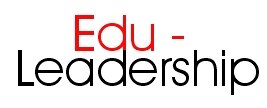|
|
|
Pilot Performance
Testing, Standards, and Accountability
As flying challenges the soul, so too should education. This year the No Child Left Behind Act of 2001 (H.R. 1) has become law. As we watch the future of education unfold, we must begin finding ways to address the change, address the challenge, and address the vision. Our Pilot Performance series provides a metaphor for navigating towards success and excellence in schools today. In education, the ultimate destiny of the navigation is a system of high performance and high student achievement. Accountability -- it's an awful lot to live up to! |
|
In-Command The concept of pilot-in-command conveys the essence of the ultimate and singular sense of responsibility, stewardship, and accountability for student achievement and educational success for children. President George W. Bush's No Child Left Behind Act (H.R. 1) thrusts accountability for student achievement to the forefront of the American agenda.
|
||
|
The Journey is the Reward Leadership in education isn't about operations, machinery or technology, it's about the human factor. It's about developing 'the right stuff' in self, and in others. And what is ‘the right stuff?' Greater competence and personal skill, proficiency, mastery, and honoring continuous learning and improvement.
|
||
|
In The Crunch! The maneuvering speed in education is now a slow and steady climb towards the utilization of effective practices to better enable the delivery of a quality education for students.
|
||
|
The Flight Environment The environment of education is a rapidly changing three dimensional world that we can only begin to appreciate at the building level. 'Weather' conditions take on new meaning in education as you encounter the atmosphere of the school - under change.
|
||
|
Unlearning Effective performance requires an ‘unlearning’ of typical perceptions and responses, and the systematic cross checking of perceptions and senses to reality through facts, details, and information. High performance demands it.
|
||
|
Overlearning Guiding school improvement involves a continuous process of accurately recognizing what is happening and adjusting actual performance to the desired performance for each objective. Through an alignment of goals, strategies, and resources aimed at increasing instructional focus and expertise, as well as generating a climate and culture of achievement, a path to greater school performance unfolds.
|
||
|
Situational Awareness As flying tests the capability of humans to accurately perceive reality and therefore respond effectively, the teaching processes should no less accurately interpret the learning progress of students and equally seek to provide an effective instructional response. |
||
|
|
||
|
Copyright 2001-2002 Edu-Leadership.com. All rights reserved. |
